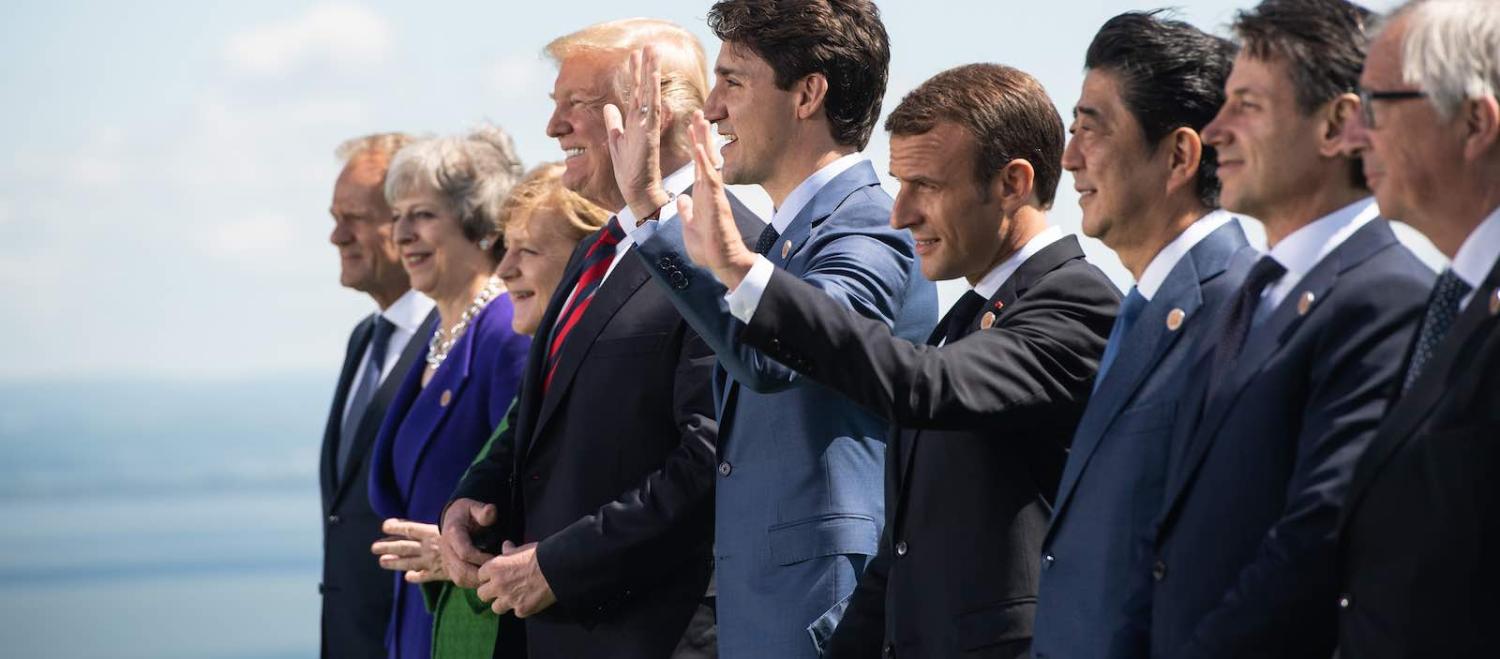British think-tank, the Henry Jackson Society, recently released its Audit of Geopolitical Capability, which it describes as providing the “fullest picture of who’s up and who’s down on the international stage”.
According to the 2019 audit, Australia was up, ranked eighth in terms of geopolitical capability. Russia, meanwhile, was down, coming in at number 10. These results prompted headlines in the Australian press with reports such as “Case for Australia to take Russia’s seat on elite G7”.
Whether or not Australia it is included as a member of such groupings will not depend on assessments of its ‘international presence’, but what it can offer to the group.
Is there any prospect of Australia replacing Russia and restoring the G7 to the G8? In short, no. Among the challenges facing Prime Minister Scott Morrison in the coming months, he does not have to include the possibility of an invitation to the 45th G7 summit in France in March 2019. Similarly, whoever is prime minister after the forthcoming Australian general election will not have to fit in attendance at G8 summits among their future international commitments.
Notwithstanding the complex formula derived by James Rogers from the Henry Jackson Society to assess and rank geopolitical capability, there are no membership criteria for forums such as the G7/8 or G20. Furthermore, there is no appetite in the G7 to expand membership. The more immediate challenge is whether the forum can survive President Donald Trump.
The G7 emerged in the early 1970s as an informal gathering of finance ministers from the US, West Germany, France, and the United Kingdom to discuss how to deal with the energy crisis. In 1976, a French initiative was to host a summit of leaders from these countries and France also invited Italy. In 1976, the US extended the invitation to Canada and the G7 was formed. In 1997, Russia joined the leader level grouping to form the G8 (but G7 finance ministers continued to meet without Russia).
Russia was always the odd man out in terms of the original grouping of “like-minded” major industrial economies and Russia was suspended from the G8 when it invaded the Ukraine in 2014.
Australia is already a member of the G20, formed in response to the Asian Financial Crisis in the late 1990s. The rationale was that the crisis had its origins in the emerging markets and as such the emerging markets should be at the table when it came to discussions on how to prevent future crises. The G20 was elevated from a finance minister’s forum to a leader-level summit following the Global Financial Crisis in 2008 on the rationale that the membership of the G7/8 was too narrow to deal with a global crisis.
It was speculated that the G20 would usurp the G7/8, however, the effectiveness of the G20 has waned, in part a reflection of its unwieldy membership.
There was no criteria for G20 membership beyond the description that it was a gathering of “systemically significant” economies. The G20 membership was determined in 1999 during a telephone conversation between Timothy Geithner from the US Treasury, his counterpart at the German Finance Ministry, Caio Koch-Weser, and the Canadian finance minister Paul Martin.
Nigeria was originally selected as a member but domestic turmoil in the country just prior to the first G20 meeting resulted in its invitation being withheld. Rather than complex calculations assessing a country’s global “presence”, it appears that a major consideration was to achieve an appropriate spread of members in terms of geographic representation.
Larry Summers, who was the US Treasury secretary at the time of the formation of the G20, subsequently told me that when it came to selecting members, the position of Australia was not clear-cut because it did not represent a region. Australia’s membership of the G20 was not guaranteed and it took a significant diplomatic effort to ensure that Australia was at the G20 table.
Australia was not included in the 2017 audit of geopolitical capability prepared by the Henry Jackson Society and this was the first time the ranking covered all G20 members. Countries are ranked relative to the US which is deemed the “leading” country in terms of geopolitical capability. The UK came in second and this resulted in headlines in the UK press such as “UK ranked second most powerful country in the world”.
The audit is based on a range of attributes and capabilities for each country which are then weighted in to form a composite index, but the indicators selected and weight given to them is a matter of judgement. Such a ranking is more a case of judgement than science. Ultimately, money talks and a country’s international influence will be related to the size of its economy.
In terms of nominal GDP (current prices, US dollar) Australia is currently the 13th largest and in terms of GDP based on purchasing-power-parity (PPP), it is the 19th largest economy. But Australia’s relative economic importance is projected to decline, with the PWC’s World in 2050 projecting Australia’s economic position falling to 28th by 2050. This resulted in other headlines that Australia would be lucky to qualify for the “G30” in 2050.
Rankings by think tanks of a country’s international importance may flatter or disappoint countries, but they have no relevance to the membership of international groupings such as the G7, G20 or subsequent iterations. Whether or not Australia it is included as a member of such groupings will not depend on assessments of its “international presence”, but what it can offer to the group. Australia must concentrate on being an active and constructive contributor across all forms of international engagement.

